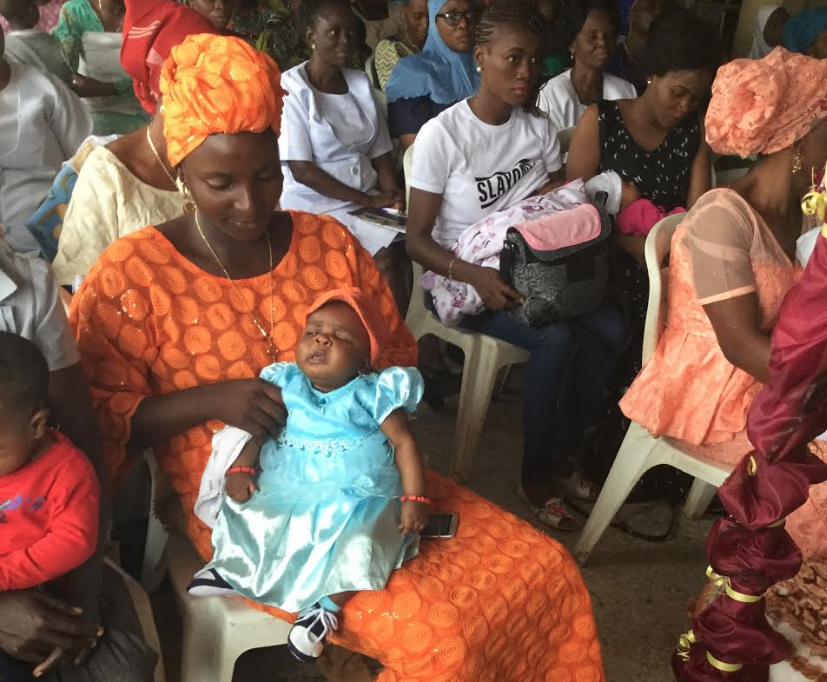Children’s early years lay the foundation for productive living in adulthood. Because of their vulnerability and because they are the future, children rights must not only be respected, it must also be protected.
The World Health Organisation, UNICEF, World Bank and the Partnership for Maternal, New born and Child Health (PMNCH), In the latest framework on Nurturing Care for Early Childhood Development, harp on responsive caregiving as critical to brain development and overall progression of children.
The potential of children who receive adequate micro nutrients in a safe and stimulating environment potential is heightened; thus, creating sustainable growth for the society at large.
Here are four tips to enable children thrive.
Advertisement
Quality health care
Children in poor health cannot really live a full life, so their right to health must be protected. The right to health includes access to potable water, hygiene and health services.
This requires countries to establish a system that provides quality health care to children through, for instance, Universal Heath Coverage (UHC). UHC aims to “achieve universal health coverage, including financial risk protection, access to quality essential health-care services and access to safe, effective, quality and affordable essential medicines and vaccines”.
Advertisement
Access to health includes parent or caregiver education and awareness on the essentiality of vaccines and where to receive them,
Children’s right to health is essential since they are more at risk of falling ill. When children are healthy and spared from life threatening vaccine preventable diseases, they can grow into healthy adults and contribute to the development of productive economies.
Early learning
At infancy, babies brain cells make 700 to 1,000 new connections every second, growing exponentially till the third year when 80% percent of the brain is formed.
Advertisement
During this time, children can begin to prepare for more formal years in kindergarten and primary school. Stimulation by caregivers is then very crucial especially through play.
Caregivers can begin to read to children, show them pictures and discuss them, teach them nursery rhymes, play games that stretch their imaginations including hide and seek and go for nature walks where the children are exposed and taught the important of nature’s inhabitants including trees.
Children, in their earliest years, will experiment and throw things around deliberately to help them understand cause and effect. Care givers can provide safe, inexpensive and even reusable household items to play with and drop.
Role play:
Advertisement
Children are natural actors. Role play helps a child develop their imagination, critical thinking, story telling and generally, creative thinking skills. The kids are able to develop a character and stay in the character the entire duration of the dramatization. Children pretend to be anything and this has been found to improve children’s reading, writing and communication skills and also to resist distractions. Role play helps children internalise, the reason it is an effective method of teaching young children valuable lessons.
Responsive caregiving
Advertisement
There is currently no such thing as spoiling a baby. Children in their earliest years, especially in the first year, totally depend on their parents/caregivers’ ability to listen and respond to their cues.
As parents or caregivers respond to a baby’s cry, smile or coo, it helps build communication and social skills. It also helps babies build their trust in the caregivers and in turn humanity.
Advertisement
According to researchers in Stanford University, toddlers who had parents/caregivers who spoke to them processed language better and had a larger vocabulary by the time they reached two years old.
Caregivers can also observe child to find out child’s interest and encourage these interest as well as engage them in it. A child who a caregiver positively reaffirming him has better control of the impulses when they are six.
Advertisement
What nurturing care framework says youngest children need
Security and safety
Children need to grow up in a secure and loving environment, with the right nutrition and stimulation from their parents and caregivers.
Also, young children, especially toddlers experience extreme fear when people abandon them, threaten to, and punish them; almost always inordinately, because of realistic expectations from caregivers. So, young children need to feel safe, they need to feel loved. They need to have trusted, reliable and informed caregivers who understand the needs of children in their early years.
Because kids from extremely poor sand low income homes face serious risks, there need social assistance and policies to mitigate risks.
Also, youngest children – babies to toddlers – need nurturing care, and this can start from pregnancy.
Stimulation
Singing and talking to children, especially when at the tail of the second trimester, helps babies, experience a loving parental connection. Plus, from birth, a baby can recognise the mother’s voice. Babies also need gentle touch, pleasant and soothing words, storytelling, being read to and being played with. There is now scientific evidence proving that caregiver-child interactions are highly beneficial for early childhood development and have long term effects.
Nutrition
Breastfeeding and skin to skin connection, amplifies the mother and child bonding a child needs to thrive and feel loved. When a mother is supported by baby’s father and/or supportive companion(s), exclusive breastfeeding for the first six months is facilitated. But a mother’s well being and her nutritional intake are essential to baby before and after birth.
Pregnant women need to have sufficient micronutrients including iron. When the babies are eventually birthed, breast milk has proven to be the best for babies; and from six months onwards, complementary feeding that are diverse and contain all the micronutrients should be included for rapid brain growth.
Report supported by Code for Nigeria.
Add a comment






